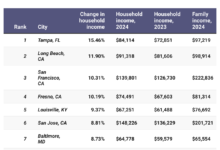Workers Are Less Productive And Make More Mistakes, Especially On Friday Afternoons

A groundbreaking research conducted by the Texas A&M School of Public Health provides unbiased understanding of employee conduct and the possible advantages linked to flexible work setups.
A recent interdisciplinary research conducted at the Texas A&M School of Public Health1 utilized an innovative data collection method to demonstrate that employees are indeed less active and more error-prone during afternoons and on Fridays.
The study, published in PLOS ONE2, was authored by Drs. Taehyun Roh and Nishat Tasnim Hasan from the Department of Epidemiology and Biostatistics, along with Drs. Chukwuemeka Esomonu, Joseph Hendricks, and Mark Benden from the Department of Environmental and Occupational Health, alongside graduate student Anisha Aggarwal from the Department of Health Behavior. The findings highlight Friday afternoons as the period of lowest worker productivity.
The researchers analyzed computer usage data from 789 in-office employees at a large energy company in Texas over a two-year period, spanning from January 1, 2017, to December 31, 2018.
Rather than relying on subjective methods like self-reports or wearable tech, the team opted for objective computer usage metrics such as typing speed, typing errors, and mouse activity to gather noninvasive insights into work patterns.
By comparing usage patterns across different days and times, the researchers discovered that computer usage peaked during the weekdays and significantly declined on Fridays. From Monday to Thursday, there was higher typing activity, more mouse movement, clicks, and scrolls. However, this activity decreased on Friday, particularly in the afternoon.
A study found that employees are less active and make more mistakes in the afternoon, especially on Fridays. This coincides with the trend of decreasing productivity from Thursday to Friday. Employers can consider implementing flexible work arrangements like hybrid models or a four-day work week to increase employee happiness and productivity.
In May 2023, around 60% of US full-time workers were on-site, while others worked remotely or with hybrid setups. Compressed workweeks with longer hours but fewer days are also common. Such arrangements reduce stress, improve job satisfaction, allow more family time, and promote physical and mental health. These flexible setups can also benefit the environment by lowering electricity use, carbon footprint, and emissions. The study’s insights can guide business leaders in enhancing performance and sustainability strategies.
Sources of Story ;
- https://www.tamu.edu/ ↩︎
- https://journals.plos.org/plosone/article?id=10.1371/journal.pone.0287976 ↩︎







